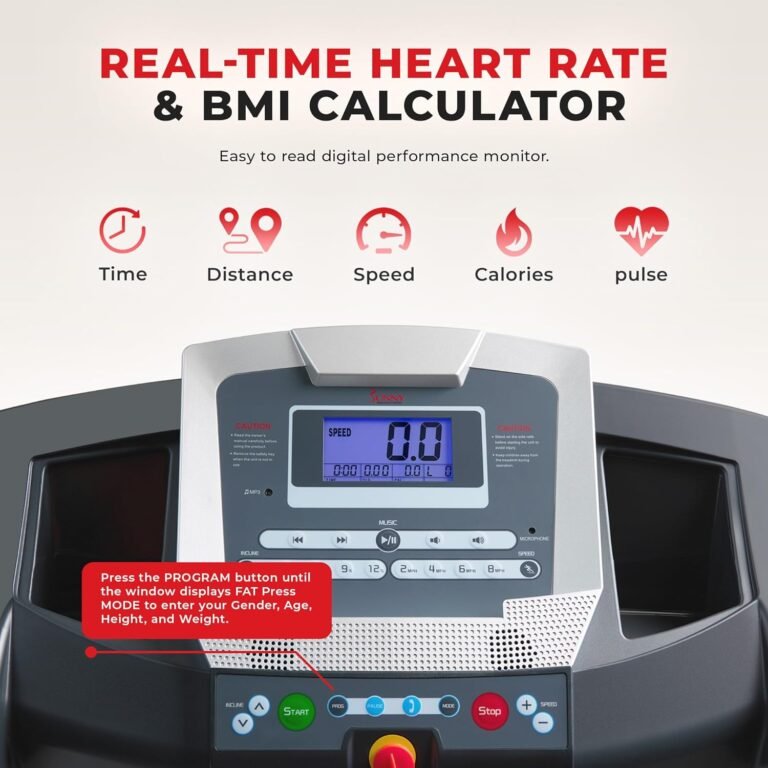Recovery Tips: Maximizing Your Rest Days
On one hand, rest days are often seen as a time to kick back and do nothing, but on the other hand, they are crucial for your body's recovery and performance. Maximizing your rest days goes beyond just lounging on the couch.
By implementing strategic techniques like optimizing your sleep, fueling your body with nutritious foods, and engaging in active recovery methods, you can truly enhance your overall well-being.
But there's one key aspect that often gets overlooked, a simple practice that can make a significant difference in how you feel and perform – curious to find out what it is?
Key Takeaways
- Incorporate active recovery techniques like stretching and foam rolling.
- Prioritize optimal sleep habits for muscle repair and hormone regulation.
- Focus on mindful nutrition choices and proper hydration strategies.
- Utilize mobility enhancement techniques and recovery tools for muscle recovery and flexibility.
Importance of Rest Days
Rest days are crucial for your body's recovery and overall performance. Understanding the importance of rest days is essential in maintaining a healthy balance in your fitness routine. Embracing rest days with a recovery mindset allows your body to repair and strengthen, ultimately enhancing your performance in the long run. It's during these rest days that your muscles rebuild and grow stronger, preventing burnout and reducing the risk of injury.
Incorporating restorative practices such as stretching, foam rolling, or yoga on your rest days can further aid in the recovery process. These activities help increase blood flow to your muscles, reduce muscle tension, and improve flexibility, ensuring that your body is ready for the next workout. Developing a recovery mindset involves recognizing that rest days aren't a sign of weakness but a strategic approach to optimizing your fitness journey. By prioritizing rest and recovery, you're setting yourself up for long-term success in achieving your fitness goals.
Optimal Sleep Habits
Wondering how to optimize your sleep habits for better recovery and performance? Sleep hygiene plays a crucial role in ensuring you get the restorative rest your body needs.
Establish a consistent sleep schedule, aiming for 7-9 hours of quality sleep each night. Creating a relaxing pre-sleep routine can signal to your body that it's time to unwind. Consider incorporating relaxation techniques such as deep breathing, meditation, or gentle stretching to help calm your mind and prepare for sleep.
Improving your sleep quality not only enhances your daily performance but also maximizes your body's recovery benefits. Quality sleep is essential for muscle repair, hormone regulation, and overall well-being. By prioritizing good sleep habits, you're setting yourself up for success in your fitness journey.
Mindful Nutrition Choices
To optimize your recovery and performance further, paying attention to mindful nutrition choices is key. Meal prep can be a game-changer on rest days. By preparing balanced meals in advance, you ensure that you have nutritious options readily available, making it easier to fuel your body properly. Consider incorporating a variety of lean proteins, whole grains, fruits, and vegetables into your meals to support muscle repair and overall recovery.
Nutrient timing is another crucial aspect to consider. Eating the right foods at the right times can enhance your body's ability to recover. Focus on consuming a combination of protein and carbohydrates within 30 minutes to an hour after your workout. This post-exercise window is when your body is most receptive to replenishing glycogen stores and initiating muscle repair.
Active Recovery Techniques
Considering incorporating dynamic stretching and low-impact activities into your routine can be beneficial for active recovery after intense workouts. Dynamic stretching helps improve flexibility and blood flow, while low-impact activities like walking or swimming promote muscle repair without causing additional stress. Another effective active recovery technique is foam rolling, which can help reduce muscle soreness and improve range of motion by applying pressure to specific points on the body. Here is a table outlining the benefits of foam rolling and dynamic stretching:
| Foam Rolling | Dynamic Stretching |
|---|---|
| Reduces muscle soreness | Improves flexibility |
| Enhances range of motion | Increases blood flow |
| Helps with muscle recovery | Prevents injuries |
| Breaks down scar tissue | Activates muscles |
| Improves tissue quality | Enhances overall performance |
Incorporating these techniques into your rest day routine can aid in faster recovery and better performance in your next workout.
Hydration Strategies
After implementing active recovery techniques to aid in post-workout recovery, the next essential aspect to optimize your performance is focusing on effective hydration strategies. Maintaining proper electrolyte balance is crucial for optimal performance and recovery. Rehydration methods, such as consuming electrolyte-rich drinks or foods, can help replenish essential minerals lost through sweat.
Hydration timing is key. Make sure to drink fluids before, during, and after your workout to prevent dehydration and support muscle function. Aim to consume fluids regularly throughout the day, not just when you're thirsty. Monitoring your urine color can also provide insights into your hydration status – aim for a pale yellow color.
Fluid intake should be individualized based on factors like sweat rate, exercise intensity, and environmental conditions. A general guideline is to drink at least 8-10 cups of water per day, but this may vary. Listen to your body's thirst cues and adjust your fluid intake accordingly to support your recovery and overall performance.
Stress Management Practices
When looking to manage stress effectively on your rest day, consider incorporating breathing exercises and mindfulness techniques into your routine.
These practices can help calm your mind and body, promoting relaxation and reducing stress levels.
Breathing Exercises for Stress
For effective stress management practices, incorporating breathing exercises can be highly beneficial in promoting relaxation and reducing tension. Mindfulness breathing is a powerful technique to help you stay present and calm your mind. By focusing on your breath, you can redirect your thoughts away from stressors, allowing your body to unwind. Here are some stress relief techniques you can try:
| Technique | Description |
|---|---|
| Diaphragmatic Breathing | Inhale deeply through your nose, feeling your belly rise. Exhale slowly through your mouth, feeling your belly fall. |
| Box Breathing | Inhale for a count of 4, hold for 4, exhale for 4, and hold for 4. Repeat. |
| 4-7-8 Technique | Inhale for 4 seconds, hold for 7 seconds, and exhale for 8 seconds. Repeat. |
| Equal Breathing | Inhale for a count, then exhale for the same count. Repeat. |
Mindfulness and Relaxation Techniques
Incorporating mindfulness and relaxation techniques into your daily routine can significantly enhance your stress management practices.
Meditation techniques offer a powerful way to calm your mind and reduce stress levels. By practicing mindful breathing, you can ground yourself in the present moment and alleviate anxiety.
Relaxation exercises, such as progressive muscle relaxation or guided imagery, can help release tension from your body and promote a sense of tranquility.
When feeling overwhelmed, take a few minutes to engage in deep breathing exercises or a short meditation session to reset and refocus.
These practices not only benefit your mental well-being but also contribute to your overall recovery and performance.
Prioritize self-care by integrating these techniques into your rest day routine for optimal relaxation and stress relief.
Mobility and Flexibility Work
To enhance your rest day recovery, prioritize incorporating mobility and flexibility work into your routine. Improving mobility is crucial for overall physical health and performance. Dynamic stretching techniques are an effective way to enhance flexibility and range of motion, helping to prevent injury and improve athletic performance. Incorporating dynamic stretches such as leg swings, arm circles, and hip rotations before and after your workouts can help loosen up tight muscles and improve blood flow to the muscles, promoting faster recovery.
Including mobility exercises like foam rolling, yoga, or Pilates on your rest days can further aid in releasing tension in the muscles and improving flexibility. Foam rolling helps to break up adhesions in the muscle tissue, reducing muscle soreness and enhancing recovery. Yoga and Pilates focus on improving flexibility, strength, and balance, which can complement your regular workout routine and contribute to overall mobility.
Mind-Body Connection Exercises
Enhance your rest day recovery by engaging in mind-body connection exercises that focus on strengthening the connection between your mental and physical well-being. Incorporating mindfulness meditation and yoga therapy into your routine can help you relax, reduce stress, and improve your overall recovery process.
Mind-Body Connection Exercises
Consider the following mind-body connection exercises to promote relaxation and rejuvenation:
| Exercise | Benefits |
|---|---|
| Mindfulness Meditation | Reduces stress and anxiety levels |
| Yoga Therapy | Improves flexibility and mental clarity |
Mindfulness meditation involves focusing your mind on the present moment, allowing you to release tension and connect with your inner self. On the other hand, yoga therapy combines physical postures, breathing exercises, and meditation to enhance your overall well-being. By incorporating these exercises into your rest day routine, you can cultivate a deeper mind-body connection and optimize your recovery process.
Recovery Tools and Equipment
Strengthen your recovery process by utilizing effective tools and equipment designed to support your rest day rejuvenation. Incorporating recovery gadgets and aids can significantly enhance your body's ability to recover and prepare for the next workout. Here are five essential items to consider adding to your recovery routine:
- Foam Roller: A foam roller can help release muscle tension, improve circulation, and reduce soreness after intense exercise.
- Massage Balls: These small, portable balls can target specific muscle groups, providing deep tissue massage to alleviate tightness and discomfort.
- Compression Sleeves: Compression sleeves aid in reducing swelling and muscle fatigue, promoting faster recovery post-exercise.
- TENS Unit: A Transcutaneous Electrical Nerve Stimulation (TENS) unit can help manage pain and improve blood flow, aiding in muscle recovery.
- Hot/Cold Therapy Packs: Alternating between heat and cold therapy can help reduce inflammation, soothe muscles, and enhance recovery processes.
Incorporating these rehabilitation devices and therapy tools into your rest day routine can help optimize your recovery and keep you feeling your best.
Monitoring Progress and Adjustments
To ensure optimal results, make use of progress tracking tools to monitor your recovery journey effectively.
By adapting to changes in your body and performance, you can fine-tune your recovery strategies for better outcomes.
Progress Tracking Tools
Tracking your progress and making necessary adjustments is essential for maximizing the benefits of your rest day recovery routine. To help you monitor your progress effectively, consider utilizing the following tools:
- Recovery Apps: These apps can track your workouts, sleep patterns, and overall recovery progress.
- Progress Journals: Keeping a detailed journal of your workouts, rest days, and how your body feels can provide valuable insights.
- Sleep Trackers: Monitoring your sleep quality and quantity can help optimize your recovery process.
- Training Logs: Recording your training sessions, including the exercises, sets, and reps, allows you to track your performance over time.
- Body Measurements: Tracking changes in your body composition, such as muscle mass and fat percentage, can indicate progress and guide adjustments.
Adaptation to Changes
Adapting to changes in your routine is crucial for optimizing your rest day recovery progress and making necessary adjustments. Keeping a recovery mindset is key to recognizing when modifications are needed.
By monitoring how your body responds to rest days, you can identify patterns and understand what works best for you. Adaptation strategies involve being flexible with your rest day activities, sleep patterns, and nutrition to cater to your body's changing needs.
Pay attention to signals like fatigue, soreness, and overall energy levels to gauge if adjustments are required. Remember, the goal is to support your body's recovery effectively.
Stay proactive in adapting your routine to maximize the benefits of your rest days.
Fine-Tuning Recovery Strategies
For optimizing your rest day recovery progress and making necessary adjustments, it's essential to fine-tune your recovery strategies by monitoring progress and making adjustments accordingly. Developing a strong recovery mindset can help you stay motivated and focused on your goals.
Additionally, incorporating physical therapy into your routine can aid in preventing injuries and enhancing overall recovery. To ensure you're on the right track, consider the following:
- Keep a detailed recovery journal to track your progress.
- Listen to your body and adjust your rest days accordingly.
- Consult with a professional, such as a physical therapist, for personalized advice.
- Use technology like fitness trackers to monitor your recovery metrics.
- Stay informed about the latest research and trends in recovery techniques.
Conclusion
By following these recovery tips and maximizing your rest days, you can ensure that your body is properly recovering and preparing for your next workout. Remember, rest days are just as important as training days in achieving your fitness goals.
Take care of your body, prioritize sleep, nutrition, and active recovery techniques, and you'll see improvements in your overall performance and well-being.
Keep up the good work and stay committed to your recovery routine!







